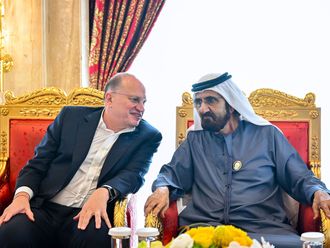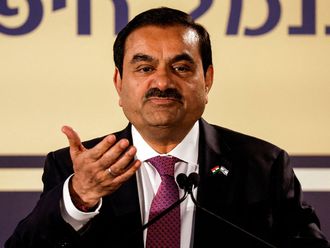Dubai: Digital technology is changing people’s lives, with consumers now increasingly keeping in touch and buying everyday groceries through virtual means. But will the internet ultimately replace the way people transact with their banks?
According to the latest survey by Accenture, customers these days — especially the younger ones — are likely to consider migrating their savings and other financial transactions online, giving rise to the trend of online-only banking, a purely web-based alternative to brick-and-mortar banking.
In certain markets outside the Middle East, some internet-only financial institutions have emerged, offering customers the option to do all the transactions, from opening an account to managing their money completely online. There is no bank teller, branch building or physical head office to speak of. Everything is done in the virtual world.
Accenture’s study, released last May 27, found that nearly four out of 10 (39 per cent) of customers who are 18 to 34 years old would consider switching to a virtual bank, compared with 29 per cent of customers 35 to 55 and 16 per cent of customers over 55.
The study among nearly 4,000 retail bank customers in the United States and Canada also found that a significant number of mostly young consumers would be open to banking with known brands like Google, Amazon and Apple if the organisations decided to offer the digital-only option.
“Tomorrow’s consumer is coming of age with a very different perception of what a bank could be,” said Wayne Busch, managing director of Accenture’s North America Banking practice. “Those expectations could become profoundly disruptive to banks if non-bank entrants gain momentum and banks fail to adapt quickly. This will have important implications for the digital generation spanning nearly all age groups.”
However, industry insiders in the UAE said that that branchless banks will find it difficult to push their business model in the region, where the majority of the payment transactions are still predominantly done in bills and coins.
“While for some parts of the population in this market, particularly those who are very tech-savvy, the idea may be relevant, but for a lot of other people, they would still want to come and see a branch,” said a top executive of a bank in the UAE. “Banking is all about trust and many times, the trust in this part of the world is established by meeting a person, actually seeing the place, feeling that the bank has a solid foundation and is trustworthy.”
It doesn’t mean digital banking has no place for growth in the region, especially with the robust social media, smartphone, laptop and tablet usage in this part of the world.
“People here are increasingly using non-physical channels for a lot of the transactions that are non-critical, but for online-only banks to replace the physical branch, I don’t see it happening,” the source added.
It is therefore now the banks’ challenge to create a “superior” customer experience both within the branch and online.
“We will still see the number of bank branches increasing in the UAE, but what will be critical [for banks to stand out] is that the branch format will have to be very different,” said Julien Faye, partner at Bain & Company Middle East, in an earlier interview.











